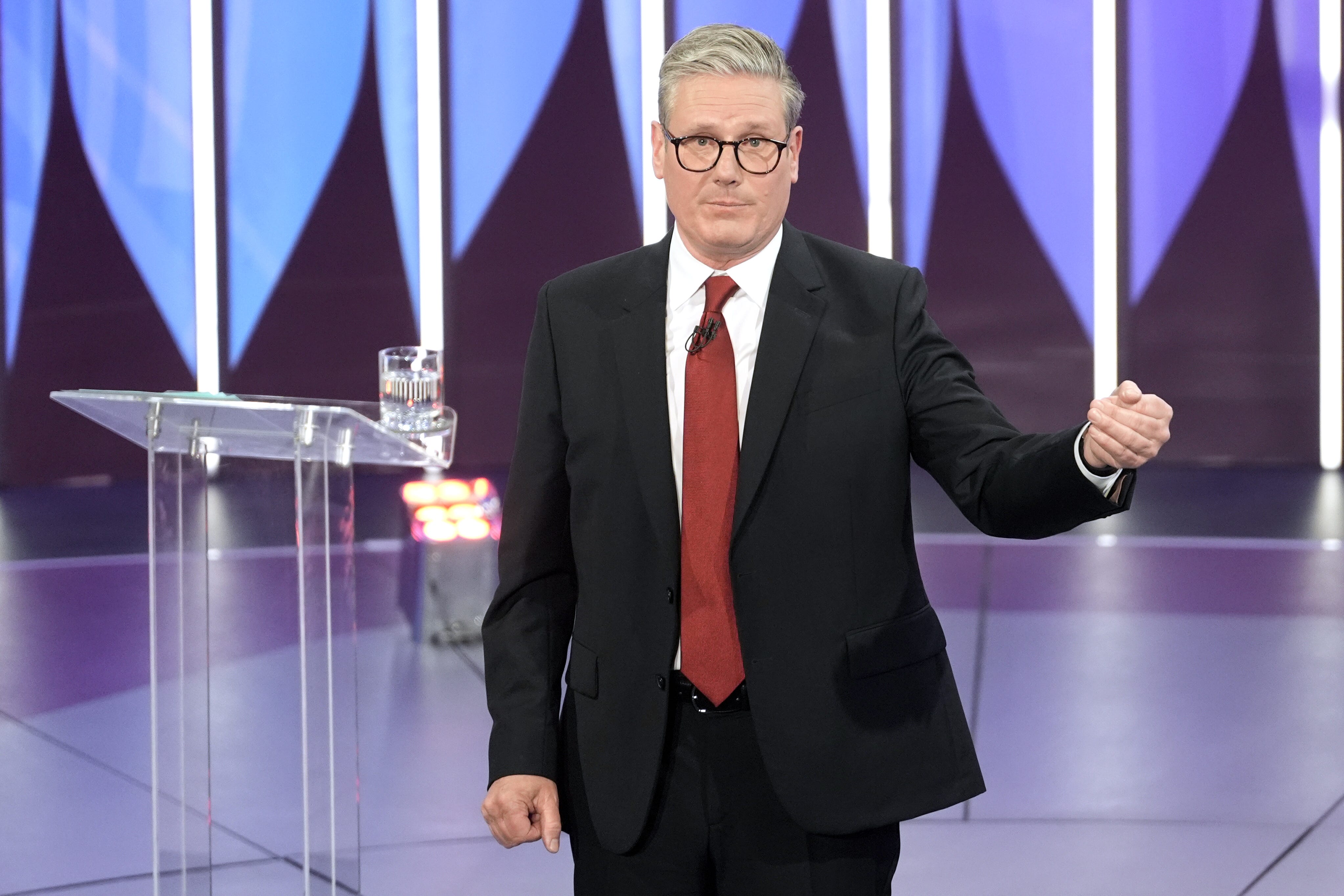Starmer vs Sunak – who really won the Question Time special debate?
Both party leaders struggled to persuade the Question Time audience that they can be trusted now, writes John Rentoul


My test for the BBC Question Time special was how honest Keir Starmer and Rishi Sunak would be about the trade-offs facing the next government.
So it was encouraging when Keir Starmer, once he had shaken off the inevitable first question about whether he really thought Jeremy Corbyn would make a “great prime minister”, said that the problem that bothered him about delivering for people was “politicians not being honest about how long it’s going to take”.
He was answering a question about NHS waiting lists, and he said he would make a start on day one, “if elected”. But it didn’t take long, under further interrogation by Fiona Bruce, the presenter, for him to cave in to the temptation to make unrealistic promises. Within seconds of talking about the problem of politicians not being honest, he said a Labour government would clear the backlog completely “in the course of the parliament”.
Given that it took the last Labour government three parliaments to get the NHS into a decent state, this seemed far from being straightforward with people. Some waffle about reform and paying NHS staff “properly” for working weekends is not going to transform the service in five short years, especially if “the money isn’t there” – as Starmer keeps saying, rightly, about the Tory plans.
Starmer did better on explaining why he had changed his mind about abolishing tuition fees and nationalising the energy companies. “I had a choice to make,” he said. With limited resources, should they be devoted to getting rid of tuition fees or to getting waiting lists down? Should they be spent on paying off shareholders or cutting energy bills? “I’m a common sense politician,” he said. “I’m telling you before the election the choices I have made.”
In other words, he was a foolish politician before, but he had come to his senses now. He tried to pretend that the economic situation had changed, which gave him a chance to remind the audience of Liz Truss’s disastrous and brief government, but the argument in principle about tuition fees and nationalisation hasn’t changed. So his plea, just as it was about his past support for Corbyn, was to say: never mind what I said then, I am being honest with you now.
Sunak was asked the same question. How could he rebuild trust in politicians? Unfortunately, his first attempt to answer it started with the phrase “national service”. I don’t know what focus groups of 2019 Conservative voters who are considering switching to Nigel Farage say, but the BBC studio audience did not like the idea of national service, and they laughed at him.
He got tied up in explaining how it would work, saying that a royal commission would look at options such as “driving licences and access to finance” as part of a mix of incentives and sanctions to make the non-military element compulsory. He may have meant that young people would gain access to finance if they did national service, rather than be denied access if they didn’t, but the audience liked it even less.
It took him a while to recover, and to get back to being honest about what he could deliver if the Tories were re-elected. “These things don’t happen overnight,” he said about his achievement in getting inflation down. “But we said we would stick to it and we did.” He accepted that NHS waiting lists had not gone so well, but “we will stick to it and we will get them down”.
An NHS doctor in the audience told him this was “eyewash rather than a deliverable goal”, so he tried a different tack.
When several questioners pointed out that the British people didn’t seem to trust him because he was miles behind in the opinion polls, he said he had been through this before. People had told him he couldn’t win against Liz Truss in the Tory leadership election, but he had prevailed in the end. “I argued against her policies,” he said. “I was proved right then, and that’s why you can trust me when I say now that Keir Starmer will put up your taxes.”
The audience didn’t sound convinced, but it seems remarkable that both candidates to be prime minister on 5 July try to prove we can trust them by saying that they are not Liz Truss.



Join our commenting forum
Join thought-provoking conversations, follow other Independent readers and see their replies
Comments